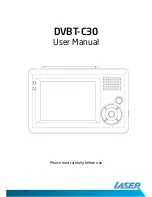
6. Clean the cup of all sediment using a rag or brush.
7. Replace the fuel filter element.
8. Reinstall the fuel filter element, fill the cup with fresh and clean diesel fuel and assemble per steps 5 and
4 above.
9. Open the fuel valve until the filter is filled.
10. Remove the hose clamp and slightly remove fuel outlet hose to purge out any trapped air in the line.
Re-attach the hose and clamp.
11. Remove four screws and Injector Inspection Cover (49) from top of Sound Shield Panel (41). Place a
clean rag under the injector inlet and using two wrenches loosen input line nut by one turn. Tap starter
to force fuel out of injector line. When air bubbles stop, re-tighten the input line nut.
Cleaning, Maintenance, and Lubrication Schedule
Note:
This maintenance schedule is intended solely as a general guide. If performance decreases or if
equipment operates unusually, check systems immediately. The maintenance needs of each piece
of equipment will differ depending on factors such as duty cycle, temperature, air quality, fuel quality,
and other factors.
Note:
These procedures are in addition to the regular checks and maintenance explained as part of the
regular operation of the engine and equipment.
After initial 20 operation hour period:
a. Change engine oil.
Every 50 operation hours:
a. Replace fuel filter.
Every 100 operation Hours:
a. Change engine oil (or with frequent use; every three months).
Note:
All maintenance procedures scheduled for 25, 50, and 100 operation hours should be performed at
least yearly.
Every 250 operation Hours:
a. Clean fuel tank.
b. Clean carbon build-up from combustion chamber.
c. Replace the air filter.
Every 500 operation hours:
a. Clean fuel tank and fuel filter.
Storage
1. Wait for engine to cool, then clean engine with clean cloth.
2. When the equipment is to remain idle for longer than 20 days, prepare the engine for storage as follows:
a. Wait for engine to cool.
b. Disconnect battery.
c. Drain fuel tank.
d. Change engine oil.
3. Cover and store in a dry, well-ventilated area out of reach of children.
Diesel Fuel and Microbes
Microbes can grow in Diesel fuel and can, over time, interfere with the Generator’s performance. When
performance begins to suffer and the engine begins to produce black smoke, a high-quality biocide must
be added to the fuel to kill the microbes. If left untreated the microbes will eventually clog the fuel lines and
ruin the equipment. The biocide must continue to be added to the fuel until the microbes are completely
destroyed and the fuel runs pure again.
10




































